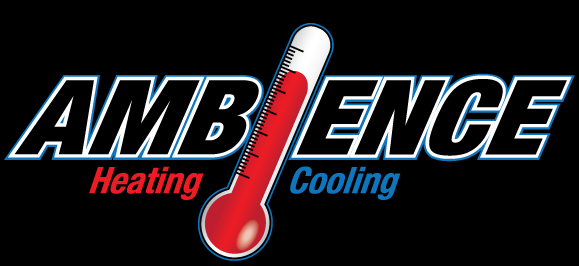
If you’re questioning whether your Wilmington residence has unhealthy indoor air quality (IAQ), it probably does.
We are indoors a lot. As a matter of fact, we’re in a building up to 90% of the time, according to the U.S. Environmental Protection Agency. And the air inside houses could be 2–5 times worse than outdoors, which could create long-term health problems.
Most Common Origins of Poor IAQ
We’ve compiled a list of the most ordinary causes of poor IAQ, the problems they make and how you can take care of these indoor air pollutants. If you’re worried about the air inside your house, we suggest talking with a pro like Ambience HVAC, Inc. about which products are ideal for your home.
Volatile Organic Compounds
Volatile organic compounds, or VOCs, are fumes emitted from common household things.
They’re found in paint and stains in addition to:
- Furniture
- Carpet
- Building materials
- Cleaning products
- Cosmetics
- Air fresheners
- Candles
When these fumes accumulate indoors, they may irritate your eyes, nose and throat. They can also result in headaches and nausea. Regardless of whether your home is in a rural or industrial area, an EPA study found indoor levels of these fumes can be 2–5 times higher than the air outdoors.
Always adhere to the manufacturer’s instructions when using paint or cleaning supplies. Unlatching a window can help fumes dissipate faster.
Air purification systems can also make it better. This system partners with your heating and cooling equipment to clean indoor air. When looking for a system, ensure it’s specifically created to eradicate VOCs.
Dust and Pet Dander
Dust and pet dander can trigger health problems like asthma and allergies, especially when it continuously gets moved by your home’s comfort system. While you can vacuum more frequently and install an improved air filter, an air filtration system might be a better solution.
This equipment hooks to your HVAC equipment to deliver powerful filtration. Some models have hospital-level filtration for eliminating particles and bioaerosols.
Lingering Odors
Modern houses are tightly sealed to boost energy efficiency. While this is great for your heating and cooling bill, it’s not ideal for your IAQ.
Stuffy odors can stick around for a greater amount of time as your residence is pulling in a smaller amount of fresh air. Since keeping your windows open all the time isn’t doable, here are two ways you can make your indoor air smell fresher.
An air purification system is placed in your ducts to neutralize odors before they recirculate. Look for one with a carbon filter and the capability to eliminate damaging VOCs. These systems can also help keep your family healthy by eliminating most bacteria and common allergy triggers like pollen and mold spores.
A ventilation system takes out musty indoor air and substitutes it with clean outdoor air. There are two types of units (heat recovery and energy recovery), so check with our professionals for more details on which solution is best for your residence.
Unsteady Humidity
It’s important your house’s humidity keeps even. Air that’s too humid can create mold, while dry air can lead to respiratory concerns.
Our techs suggest 40–50% for ideal comfort. To keep yours in balance, think about getting a whole-home humidifier or whole-home dehumidifier with your HVAC unit.
In place of having to pull a humidifier from room to room, this equipment delivers balanced humidity across your house.
Carbon Monoxide
Carbon monoxide is colorless gas you can’t smell. It’s caused by insufficient combustion in fuel-burning appliances, like gas heating systems, water heaters or fireplaces.
It poses a severe health risk. In little levels, it can cause flu-like ailments like headaches and nausea. It can be deadly in heavy levels.
We advise yearly furnace maintenance to double-check your system is operating like it should. This work allows our technicians to spot troubles before they get bigger, including malfunctions that can lead to carbon monoxide leaks.
The best way to keep your house free of carbon monoxide is to put in detectors. These alarms need to be on all floors close to bedrooms and living spaces.
Enhance Your Residence’s Air Quality with the Ambience HVAC, Inc. Specialists
Know that your residence has inferior air quality but not sure how to enhance it? Or unsure which option is best for you? Give our friendly HVAC pros a call at 302-239-HVAC (4822) or contact us online today. With free estimates and expert support, we’ll help you find the ideal solution for your home and budget.
